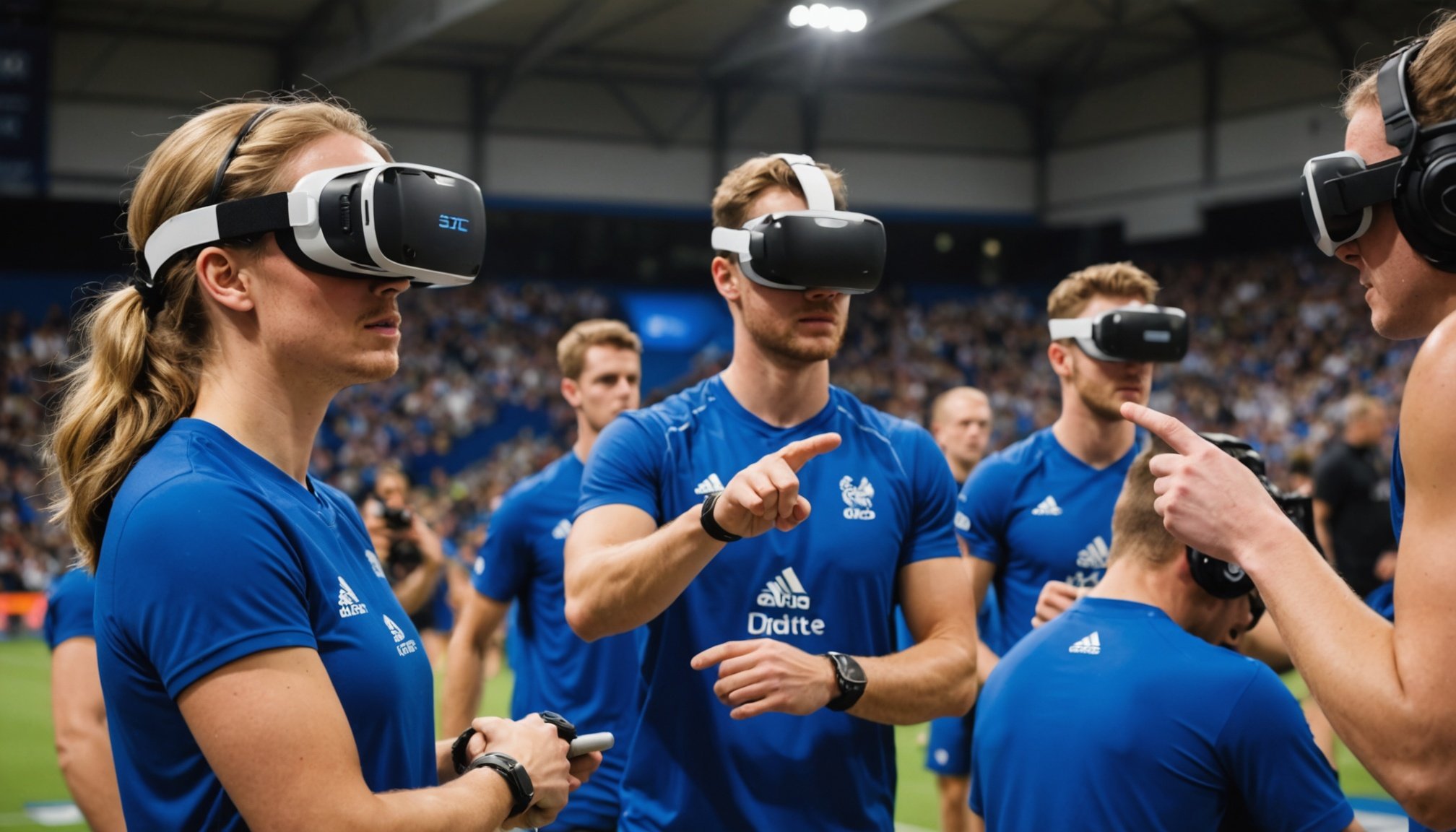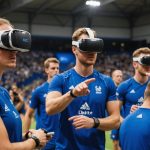Overview of Virtual Reality in Sports Training
Virtual reality (VR) technology is revolutionizing how athletes train by creating controlled, simulated environments for practice and improvement. Defined as a computer-generated simulation of a 3D environment, virtual reality allows users to interact with digital surroundings via headsets and motion-tracking devices. The integration of technology into sports training is enhancing performance through precise, repeatable scenarios, providing an unparalleled edge.
Historically, the evolution of VR in sports has been transformative. From rudimentary simulations in the early 2000s to today’s sophisticated setups, VR has consistently advanced to meet the needs of elite athletes and teams. Various sports, from football to skiing, are embracing these cutting-edge technologies, benefiting from detailed analysis and immersive experiences.
Also read : Mastering the waves: how uk surf coaches harness ocean science for expert wave selection
Current trends indicate a growing presence of virtual reality in diverse sports disciplines. In basketball, for example, VR facilitates mental conditioning, allowing players to experience game-like pressure without leaving the gym. Similarly, in baseball, athletes utilize VR to improve pitch recognition. The integration of VR into sports training not only enhances physical skills but also sharpens mental acuity, pushing athletes closer to peak performance.
Benefits of VR for Athletes
Virtual Reality (VR) is revolutionising how athletes approach their training regimens, providing a myriad of benefits designed to boost athlete performance. By incorporating VR, athletes can experience enhanced training efficiency. This cutting-edge technology offers immersive training scenarios that simulate various sports environments, allowing athletes to practice without the constraints of physical limitations or weather conditions. VR creates tailored sessions based on an athlete’s unique requirements, ensuring each training is as effective as possible.
Also read : Find local pick up soccer games made easy with poteau
Injury prevention is another crucial advantage VR provides. Utilising VR simulations, athletes can safely recognise and navigate scenarios prone to injury, effectively honing their ability to avoid potential hazards. These simulations educate athletes about body mechanics and corrective techniques, further reducing the risk of injuries during competitive events.
Moreover, the psychological benefits of VR cannot be understated. This technology improves mental readiness by familiarising athletes with high-pressure situations in a controlled environment. VR provides a platform where they can mentally rehearse strategies, boosting confidence and focus during actual competitions. In summary, VR plays a crucial role in enhancing overall athlete performance, making it an invaluable tool in modern training practices.
Case Studies of UK Athletic Teams Using VR
Virtual reality (VR) has been making waves in the sports industry, with numerous UK sports teams adopting this technology to enhance performance and training. These success stories highlight the transformative impact of VR in sports.
Case Study: UK Football Clubs
Among top UK football clubs, the incorporation of VR has become progressively prevalent. Clubs utilise VR for comprehensive player development and detailed performance analysis. Players can simulate match conditions, allowing for realistic practice without physical strain. Consequently, feedback from coaching staff reveals significant improvements. They observe enhanced spatial awareness and decision-making skills in players, contributing to an overall more strategic game approach. Furthermore, clubs report that VR fosters a deeper understanding of tactical formations.
Case Study: UK Rugby Teams
In rugby, VR finds its application in training sessions, refining both physical and gameplay skills. Rugby coaches note tangible improvements in players’ tactical awareness and reaction times. Feedback from interviews indicates that players appreciate the heightened focus on skill enhancement and stress management, offering a more immersive learning experience. Coaches are highly optimistic about VR’s potential to revolutionise traditional training methodologies.
Case Study: UK Olympic Athletes
UK Olympic athletes benefit from VR by integrating it into their training regimens. Collaborations with tech companies create bespoke VR solutions tailored to individual needs. Their training includes simulation of event scenarios, enhancing preparedness. Performance metrics are meticulously analysed, with data showing improved agility and technique following VR training. Interestingly, athletes report greater confidence and competitive readiness, attributing much of their success to these cutting-edge innovations.
Future Trends in VR for Sports Training
Emerging technologies in VR are set to revolutionize sports training, offering innovative solutions and reshaping traditional methods. With continuous advancements in technology, VR is becoming more accessible and immersive. It presents unprecedented opportunities to enhance athletes’ skills, facilitating tailored training programs that simulate real-match conditions.
One promising trend is the integration of Artificial Intelligence with VR. AI algorithms can analyze performance metrics in real-time, providing personalized feedback and adjustments. This combination could help athletes refine their techniques, predict opponent strategies, and optimize their training regimens based on data-driven insights.
However, the adoption of VR in sports training faces several challenges. High initial costs for advanced VR equipment and software can be prohibitive. There is also the complexity of ensuring the technology replicates realistic scenarios, which remains a limitation as VR evolves. Moreover, balancing the use of VR with traditional methods is crucial to ensure holistic athlete development.
In sum, the future of VR in sports training holds tremendous potential, provided these challenges are addressed, and the technology advancements continue to improve accessibility and realism.
Expert Opinions and Research Findings
Recent research studies have illustrated the impressive effectiveness of virtual reality (VR) in enhancing sports training. These studies give significant weight to VR as a credible tool in sports development. Expert insights gathered from sports scientists suggest that VR helps athletes improve decision-making skills by simulating game situations. Psychologists further support these findings by highlighting VR’s benefits in reducing pre-game anxiety and building confidence.
Credibility in sports training often relies on the successful integration of innovative methods. VR, supported by empirical evidence, demonstrates this suitability. Various research studies emphasize how VR supports cognitive development, reaction times, and even teamwork by enabling athletes to experience immersive environments.
When teams consider incorporating VR into their training regimens, experts recommend a balanced approach. It’s essential to integrate VR exercises alongside traditional training methods to maximize the potential benefits. Teams are encouraged to tailor VR programs to specific athletic goals, focusing on areas such as strategic planning and precise motor skills. Implementing a carefully crafted VR strategy could revolutionize training sessions, offering athletes a new edge in competitive sports. Teams willing to adopt this technology may find themselves at the forefront of modern sports innovation.











